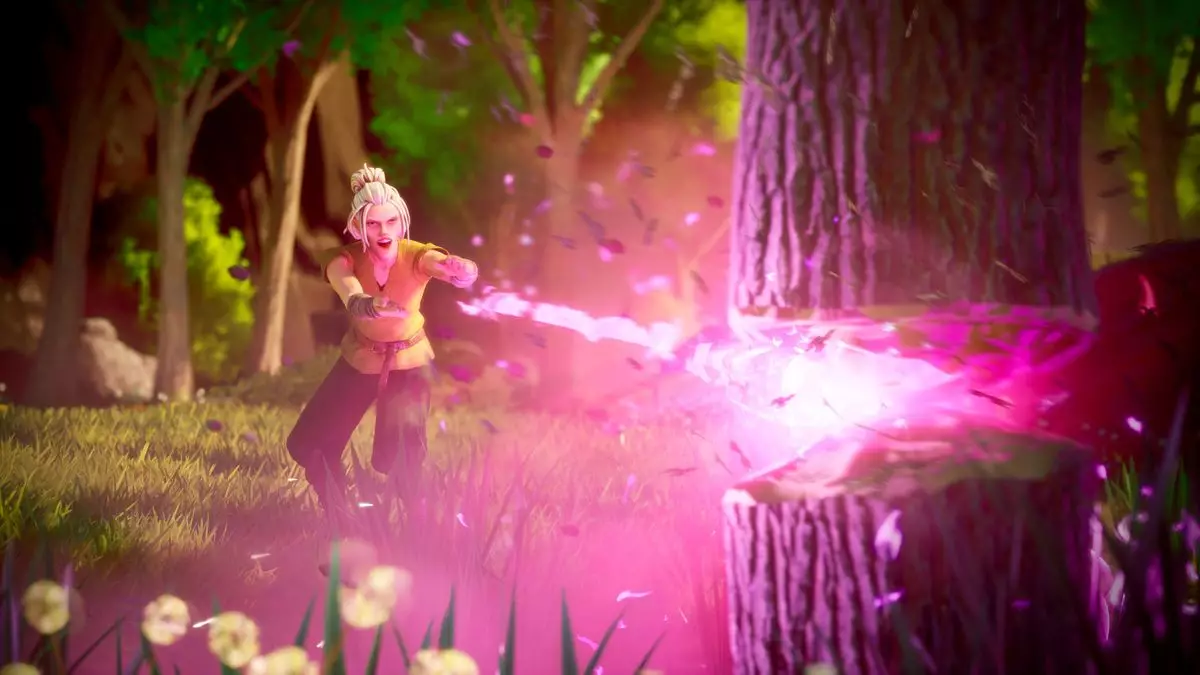Jagex’s upcoming title, RuneScape Dragonwilds, represents a remarkable evolution of the RuneScape franchise that has captivated gamers for years. Announced after months of speculation and quiet development, Dragonwilds further showcases Jagex’s commitment to expanding its universe by exploring the survival game genre. What is particularly striking about this title is its progressive approach to accessibility. Unlike many contemporary game launches that demand high-end hardware, Dragonwilds promises an experience that accommodates a broader audience.
Hardware Requirements: A Refreshing Change
In an era where gaming requirements seem to escalate with each blockbuster release, Jagex has taken a commendable step by setting comparatively low hardware benchmarks. While the phrase “potato gamers need not fear” may be a slight exaggeration, the system requirements invite a sigh of relief for those worried about outdated equipment. The game’s demands of an Nvidia GeForce GTX 1060 or similar GPU reflect a thoughtful consideration of the existing player base, particularly fans of RuneScape, most of whom possess modest gaming setups.
When comparing Dragonwilds with other titles powered by Unreal Engine 5, such as Black Myth: Wukong or Avowed, it’s evident that Dragonwilds has intentionally opted for accessibility. Requiring only a GTX 1060 or equivalent ensures that it doesn’t alienate its player base while maintaining stunning visuals. This hallmark of accessible design is something that Jagex has built its reputation on, and they’re managing to carry it forward into a new genre.
The Growing Demand for Storage Space in Gaming
Dragonwilds stakes its claim not only in graphic fidelity but also in its surprisingly light footprint. Achieving an installation size of just 25 GB is notable, especially when most prominent titles boast sizes that can often exceed 75 GB. In this age of massive game installations—where titles like Kingdom Come Deliverance II can demand up to 100 GB—Jagex’s decision to keep the file size manageable speaks volumes about their understanding of both current gaming trends and player comfort.
Players with limited disk space can breathe a sigh of relief; Dragonwilds demonstrates that it is still possible to create an engaging experience without bloating the installation size. This trend toward smaller file sizes could help revolutionize future game development practices, encouraging studios to prioritize quality over unnecessary expansiveness.
Potential Game Mechanics and Comparison with the Competition
While Dragonwilds will undoubtedly incorporate familiar elements from RuneScape—such as lore and spells—the pivot toward a survival format poses exciting new opportunities for gameplay innovation. Drawing comparisons to titles such as Valheim opens up a conversation about its core mechanics. Both games emphasize skill grinding and boss battles, but unlike Valheim’s lightweight system requirements and minimal storage needs, Dragonwilds seems to strike a more ambitious visual note.
Though the upcoming title requires slightly more demanding specifications than Valheim, many gamers will appreciate its enhanced graphics powered by Unreal Engine 5, along with richer atmospheric environments. This balance of aesthetic ambition while remaining low-key in terms of hardware can attract players who may otherwise shy away from the genre due to hardware limitations.
Anticipation for a Bright Future
Given its planned release date in 2026, it is expected that by the time Dragonwilds hits shelves, technology will have evolved significantly. However, Jagex’s choice to create a game that respects its audience’s purchasing power and hardware capabilities is a commendable decision that echoes across the industry. By ensuring that a beautiful game does not necessitate cutting-edge tech, they bolster a community that thrives on both nostalgia and innovation.
Ultimately, RuneScape Dragonwilds stands as a beacon of hope for gamers who value artistry without the exclusion of those on lower-spec machines. By prioritizing accessibility and celebrating the classic RuneScape spirit within a new genre, Jagex has positioned themselves not just as developers, but as champions for an inclusive gaming landscape.

